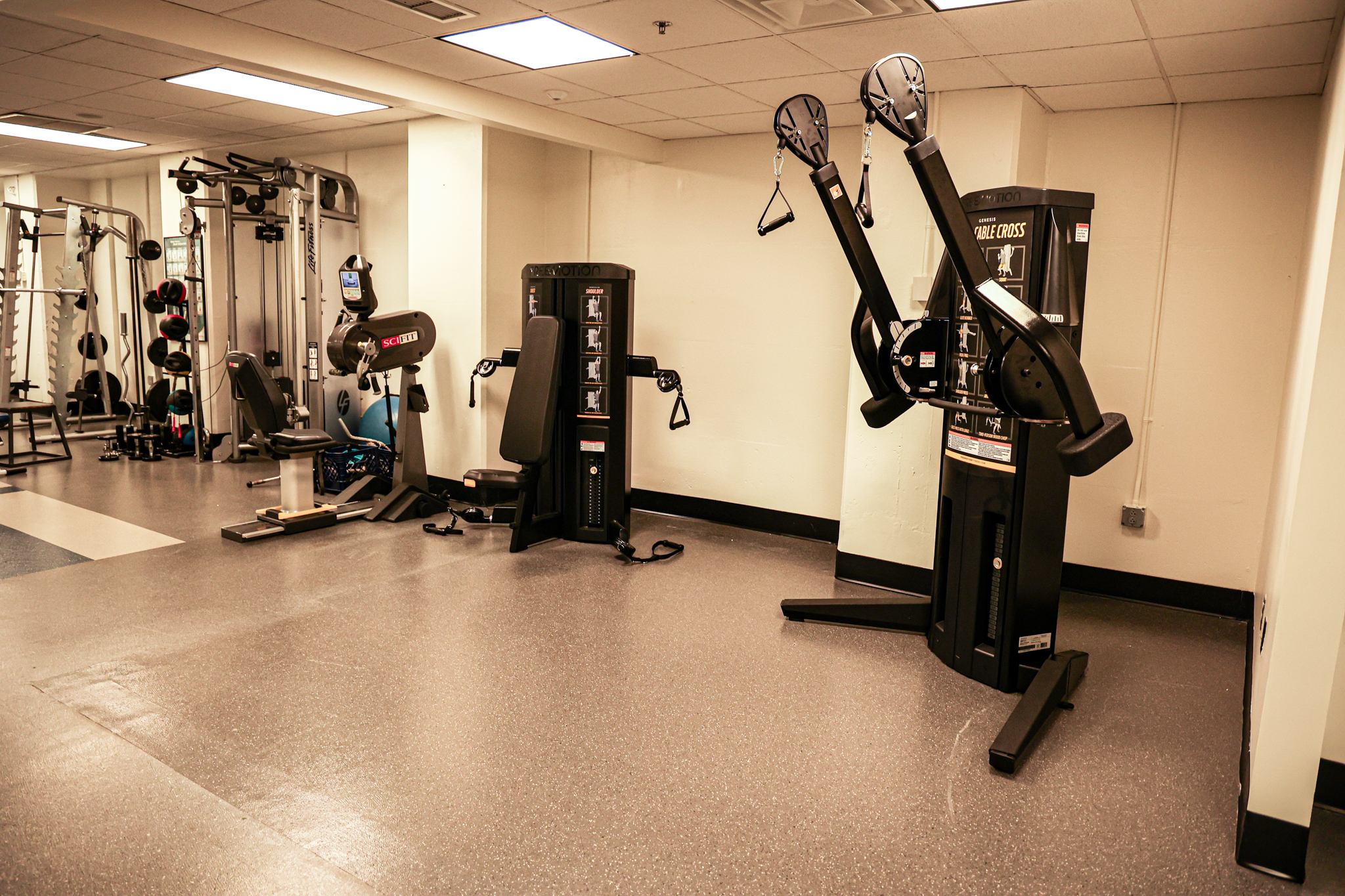Adaptive Fitness Area at University of Delaware Prioritizes Accessibility and Belonging

How the University of Delaware empowers students of all abilities with adaptive fitness equipment.
When a student reached out to the University of Delaware Campus Recreation about how the fitness floor is not accommodating to wheelchair users, the department knew something had to change.
After hearing her feedback, the department toured the fitness floor alongside the student to view the space with a new perspective. Together, they identified problematic areas and came up with a plan.
“It was eye-opening to walk through the facility with her and get a better understanding of what her experience is like,” said Adam Jines, the director of Campus Recreation. “That got the ball rolling for us because we recognized this was a population that was largely ignored for a long time. We wanted to rectify this.”
Designed for Independence
To make room for adaptive fitness equipment, the rec department transformed a low-traffic staff workout area into the adaptive fitness space. Utilizing existing space combined with an internal grant allowed the University of Delaware Campus Recreation to open the adaptive fitness area with two new machines.
These machines included a dual cable cross machine and an accessible back and shoulder machine. The main difference between adaptive fitness and typical equipment is the adjustment points are lower so wheelchair users can work out independently.
In the absence of adaptive fitness equipment, students who use wheelchairs may be forced to rely on ither students or staff to exercise. This can be anxiety-inducing and discourage facility usage. The adaptive fitness equipment allows students to complete their workout on their own.
“The important thing is this isn’t a massive facility change, but it’s an opportunity for that population to feel seen,” explained Jines. “It’s not a massive population on campus, but for those who are wheelchair users, it was necessary. Where did they have what was that opportunity to exercise and work out? There really wasn’t one on campus, so we needed to fix that”
Fitness for Everyone
Jines highlighted one of the challenges was convincing people that adaptive fitness does not take away from the general population. Students and faculty were hesitant to support adaptive fitness because they worried their resources would be impacted.
“When a group has something, there’s a concern it’s being taken away as you make changes,” said Jines. “We helped students and faculty understand they’re not losing anything, rather we’re trying to accommodate others. In fact, it may provide opportunity for those in your user group as well. We want to make it really user friendly experience for all.”
These concerns were resolved upon the space’s opening as adaptive fitness equipment is not exclusively designed for wheelchair users. This equipment ultimately enhances the resources available to everyone. It empowers wheelchair users with greater control over their workouts while offering additional options for all students.
Since the adaptive fitness area is tucked away from the main fitness floor, students looking to have a more private workout also benefit from this area. The feedback on the adaptive fitness equipment has been positive from all who use it.
“The traffic to this area has certainly picked up,” said Jines. “This area isn’t inundated with people, but the equipment is being used by everybody.”
Aiming Towards Adaptive Fitness
Adaptive fitness aligns with the University of Delaware Campus Recreation’s overall goal to foster an inclusive environment to all students. By creating an inclusive space, the rec department hopes to empower all students to reach their personal fitness goals.
“It’s really important to make our students feel they have a place no matter who they are, what they’re looking for and what their goals are,” explained Jines. “Students should have a place where they can see themselves reaching those goals.”
Want more insight on how to make your fitness centers more inclusive? Sign up for a digital subscription here.
Related
Yaslen Clemente Shows Off Leg Day Gains and Shares Her…
Yaslen Clemente isn't just an influencer—she's a fitness powerhouse. The social media star is known for her intense workouts, and she recently sha
Samantha Espineira Stuns in Blue Swimsuit and Shares Her 5…
Samantha Espineira knows how to turn heads, both on and off the runway. The successful model and Instagram influencer regularly shares breathtaking
The Best Fitness Trackers To Help You Reach Any Health…
Best Health Tracker: Oura Ring 3Why We Love It: I’ve tried many, many fitness trackers—but I tend not to stick with one watch or band for very long. I’ve
#CycleSyncing debunked: Popular TikTok trend not backed by science
A new study has debunked a popular TikTok wellness trend called cycle syncing, which claims that tailoring a workout routine to match the hormonal changes that












